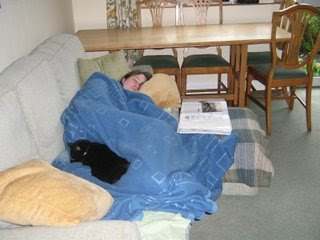
Good luck for the exam. You’ve worked hard and deserve to do well.
There are really only 2 main things to remember:
write as accurately as you can (especially in paper 2) and
ANSWER THE QUESTIONS.
Paper 1: remember the standard imagery/context/linking questions and how to do them. If you don’t know, read back in the blog or email me!
Otherwise:
*keep an eye on the marks and make your answer an appropriate length
* explain anything that seems remotely difficult (that the marker might think, if you don’t explain it, that you don’t understand)
* don’t ramble on unnecessarily
*use lots of white space between your answers (paper isn’t rationed and it makes it nice and easy to mark)
* remember that you don’t get marks simply for identifying a technique (eg “It’s a minor sentence”) but by doing so and THEN writing about the exact effect in the context
* remember that, generally speaking, you get the marks for the comment, not the quote. The quote is just to show what bit you’re talking about.
Paper 2: remember that the “questions” comprise a general description of the text followed by a (usually 2-part) instruction.
Sometimes the description might seem a bit alarming but the instructions might be a lot simpler, so do think hard before you choose a question.
Remember, too, that just telling the story will not be enough, but that telling selected bits of the story to illustrate your main points (ie to answer the “question”) will be necessary.
And think of the SECT idea, if it’s helpful, though don’t stick rigidly to the CT bit of it – or not in that order, necessarily. But you don’t want a whole list of statements: SSSSSSSS! If you state something about the text, give evidence to back it up. Evidence = quote or direct reference (ie something particular that happens in the story that illustrates what you’ve said).
And do show awareness of the writer’s techniques – essentially. Mentioning the writer’s name occasionally is useful: “Miller makes Eddie reveal his feelings when….”.
And remember the poor old marker: underpaid, ageing, grumpy, distracted. Write readably. Miss lines. Number accurately. Don’t waffle to no effect.
Good luck!
 Well, this is it.
Well, this is it.




































 Today we spent much of the time doing the essay assessment. If you missed this, or if you don’t quite pass, do be ready for the reassessment on
Today we spent much of the time doing the essay assessment. If you missed this, or if you don’t quite pass, do be ready for the reassessment on 





 This evening I gave you the tent analogy. As you write a critical (literature) essay, you’re answering the question (obviously) and you need to remember to do so by SECTing or something along these lines. But do also keep remembering to
This evening I gave you the tent analogy. As you write a critical (literature) essay, you’re answering the question (obviously) and you need to remember to do so by SECTing or something along these lines. But do also keep remembering to 

